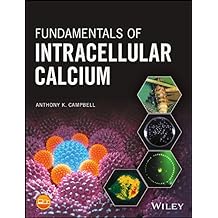frozenborderline
Senior Member
- Messages
- 4,405
You omitted the fact that phenibut also acts on dopamine receptors and antagonizes PEA.
Phenibut (beta-phenyl-GABA): a tranquilizer and nootropic drug.
Lapin I1.
Author information
Abstract
Phenibut (beta-phenyl-gamma-aminobutyric acid HCl) is a neuropsychotropic drug that was discovered and introduced into clinical practice in Russia in the 1960s. It has anxiolytic and nootropic (cognition enhancing) effects. It acts as a GABA-mimetic, primarily at GABA(B) and, to some extent, at GABA(A) receptors. It also stimulates dopamine receptors and antagonizes beta-phenethylamine (PEA), a putative endogenous anxiogenic.
yeah, I was more interested in the "hangover" than the acute effects, and this "hangover" ( i use it in quotes because it wasn't like a standard hangover) happened among other drugs with different pharmacological effects, the only commonality being gaba agonism. I gotta look again but I think GHB and Phenibut share GABA-B agonism. I would think glutamate toxicity as a kind of rebound would make sense with both of them.
I neglected to mention that i did have one experience with alcohol during this period.
I had quit drinking totally about 3 months before I got sick, and so I didn't have many experiences, but I did have one relapse with drinking while I was ill (I was at school still, so certainly not as ill as I am now, but fairly ill still). That hangover was the worst hangover I've ever experienced in my life. It was not the most I've ever drank ever, and not solely attributable to the alcohol naivety for a couple reasons I won't go into. I've had alcohol poisoning before this, and was a drinker from when I was about 18-21-and-a-half, so I've experienced hangovers before, and many different doses of alcohol.
I remember palpitations and just a very fast weak pulse the whole day after, which is not something I've ever gotten from a hangover before, and then, the kind of brain on fire storm and inability to even think a thought clearly, all of this, feeling extremely intensely weak. The only thing that relieved it at all, was again, gabapentin. Now the alcohol hangover was a little different as alcohol has a lot more dirty effects, esp. the ones on cardio system. But I still had that "brain-on-fire" part of it that I describe from these other substances.
I'm surprised I can even remember this stuff to be honest. This was awhile ago, before I had any idea I might be sick for the rest of my life lol. I definitely didn't take notes, but it just occurred to me recently when I took gabapentin and remembered this.

